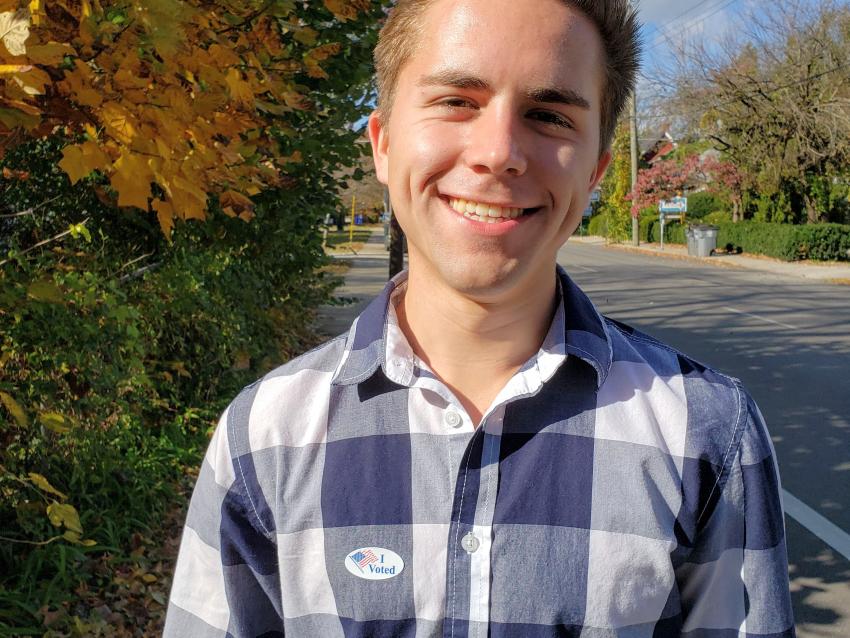
Summer Research Fellow Spotlight Patrick Edwards
"Political scientists and psychologists have long debated the role that women’s descriptive representation plays in citizens’ attitudes towards their government. Drawing from psychology’s role congruity theory, many argue that individuals give improved evaluations of their elected officials if these individuals fit archetypical stereotypes of what a leader should look like. In this case, it may be true that when government institutions work better and more accurately represent the population, women have a higher chance of being elected and the government has better citizen evaluations. I hope to determine if women’s descriptive representation in Chilean and Brazilian local governments improve citizens’ attitudes of their government."
Q: How did you first get interested in undergraduate research at UK?
A: "My interest in undergraduate research at UK began before I was a UK student. I started my undergraduate studies at Northern Kentucky University (NKU). I transferred to the University of Kentucky, an R1 research university, after realizing that NKU could not provide the quantitative training and research experience needed to compete for admission into the best PhD programs."
Q: How long have you been engaged in undergraduate research?
A: "2 years if you include preparing and presenting a research paper at the Kentucky Political Science Conference. 1.5 years if you only include quantitative research."
Q: Describe what a typical day of remote summer research activity looks like for you. How does this differ from your pre-COVID research activity?
A: "In truth, they are not all that different. This research involves manipulating datasets in computer programs such as STATA and Excel. A typical day for me involves finding a few hours to sit in front of a screen to search for and fix data errors, translate labels from Portuguese or Spanish, and otherwise prepare the data for actual statistical analysis. The largest difference is where I'm manipulating the data. Working in my apartment is vastly inferior to spending quiet afternoons in Willy T."
Q: What has been the most exciting aspect of your research so far?
A: "I've had two years of experience with STATA at this point but oftentimes I'll have problems I've never faced before. The most exciting parts of this project are when I finally have a breakthrough and solve a problem I've spent hours troubleshooting."
Q: What advice would you give to other UK students thinking about doing research?
A: "Research projects look brilliant when finished but that sleek final product hides hours of both thoughtful progress and mindless grinding, especially if your project has a quantitative focus. Don't be discouraged when you hit a mental, physical, or virtual roadblock as all great researchers inevitably will do so. The best advice is to push on with renewed determination, though with plenty of breaks and snacks!"
The UK Office of Undergraduate Research's Summer Research & Creativity Fellowship program provides undergraduates with the opportunity to study in a wide variety of disciplines while doing intensive and self-directed research under the supervision of a faculty mentor.